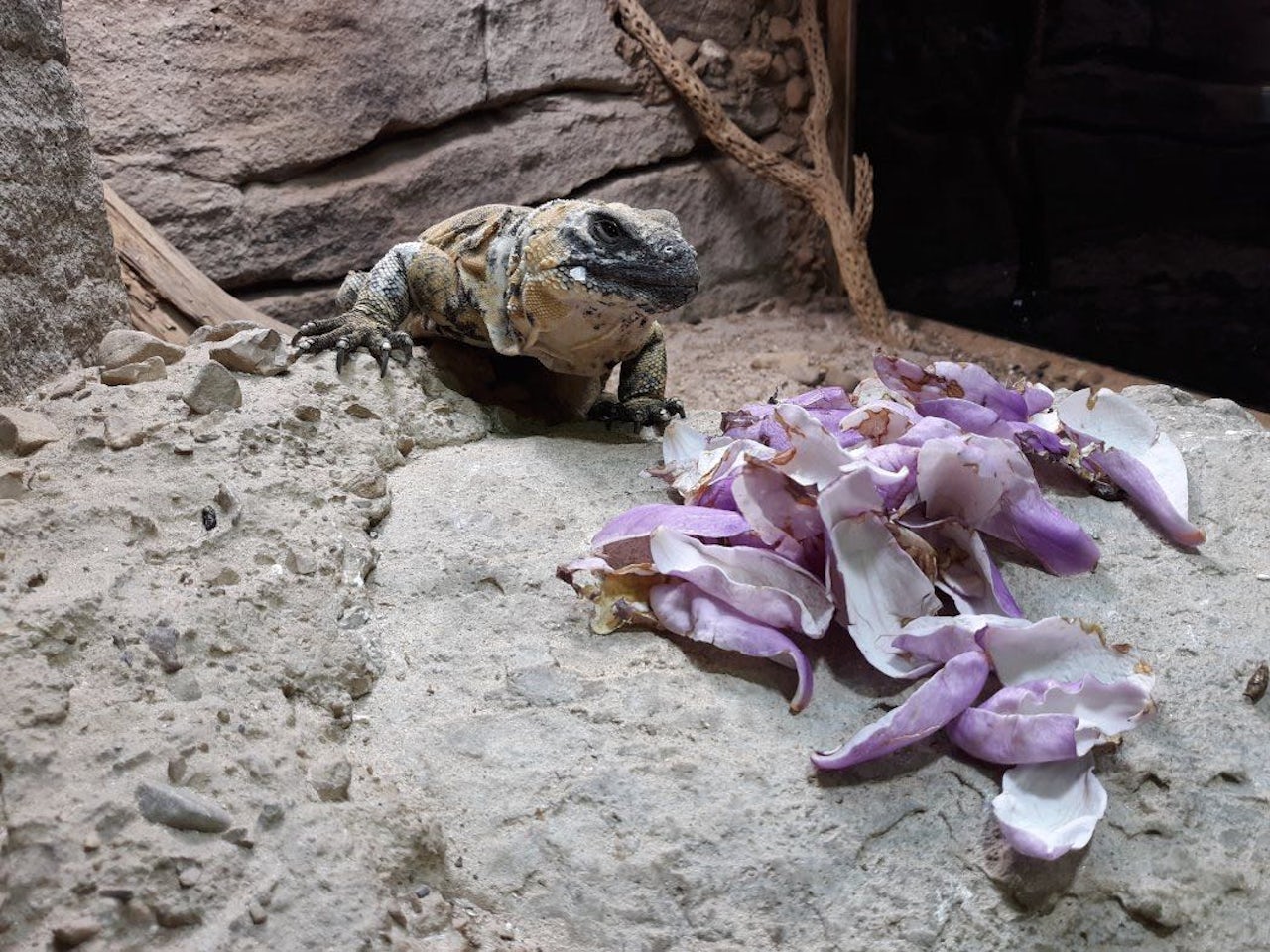As Told To
Stories about the way the world works, in the words of people living in it.
Heather DeBord is a 48-year-old zookeeper at Zoo Knoxville, a 53-acre zoo in the Tennessee city known for successfully breeding endangered species like red panda and rare turtles. She’s worked as a zookeeper in the herpetology department, caring for reptiles and amphibians, for the last six years. She spoke with The Outline about working at the zoo as part of “As Told To,” our ongoing series about how the coronavirus is reordering peoples’ lives.
DeBord emphasized that “the [zoo] animals are getting absolutely everything they need. The city has come in for our elephants and giraffes, and bringing in trees they’ve cut down [to feed] the animals. The animals are going to be alright, and work is still going on. We’re still hatching some critically endangered tortoises and things like that.”
The zoo is a ghost town right now, whereas normally there are 100 staff on the grounds, even on rainy days, when we don’t have guests. There's a lot of social distancing because there’s just nobody there. A lot of folks were laid off. Our zoo raises 86 percent of its operating budget from ticket sales and so on… zoos in general operate on slim margins, because we're not about turning a profit, but conservation and protecting animals. I was telling someone the other day that I didn't realize how many people from other departments I encountered every day until I stopped encountering them. I can go two to three hours without talking to another human being because we are all in our own departments staying away from one another.
We have different schedules for different days. On Tuesdays and Saturdays, those are diet days, for example, where we prepare food for the tortoise collection, which is about 250 animals. That takes all morning, feeding the animals. When the zoo is open I'll talk to guests, and we usually do a keeper chat once or twice a week and explain to guests what we’re doing, and give them a chance to engage with some of the animals.
Everyone is cross-trained in my department, which means there are at least three other people who know how to do what I do. So if I were to get sick and be unable to come in, the hardest part would be feeling like I couldn’t support my team. We have always had policies in place or SOPs of how we do things for all of the animals that we have, so in the case that something happens, we’d be able to come in and do what we do.
When the COVID-19 crisis started happening… when it first appeared in the US, and more than one patient was sick and we knew that it was likely to impact us, we started being proactive. We made sure we had these SOPs for absolutely every animal.
A lot of times in herpetology we intuit things, we’ve been around reptiles and amphibians for so long that we just intuit what they need. It’s really hot this day and so we open the doors to the greenhouse. Someone else might not intuit that, or think 60 degrees is enough when you should only open the doors at 75 degrees or above. And so we took a really close look at our SOPs to make sure that we were covering absolutely everything so that someone who had no prior knowledge of how to work these animals and could do it well enough that the animals would survive.
I don’t think, speaking for myself, I had any idea how bad it was going to get. I wasn’t super nervous until they closed the schools and people were bringing kids that were sick, and that made us nervous. We have a few animals that can actually catch the virus, the great apes, gorillas, and chimps — probable recipients of the virus — and the people working with those animals immediately began wearing masks. We still don’t know a lot about what kinds of infections can be caught from human to animal and vice versa, and especially with endangered animals we wanted to protect their health.
Eventually we started putting signs on doors saying, “please, if you have so-and-such symptoms, don’t come and risk the animals and our staff.” And then we closed.


